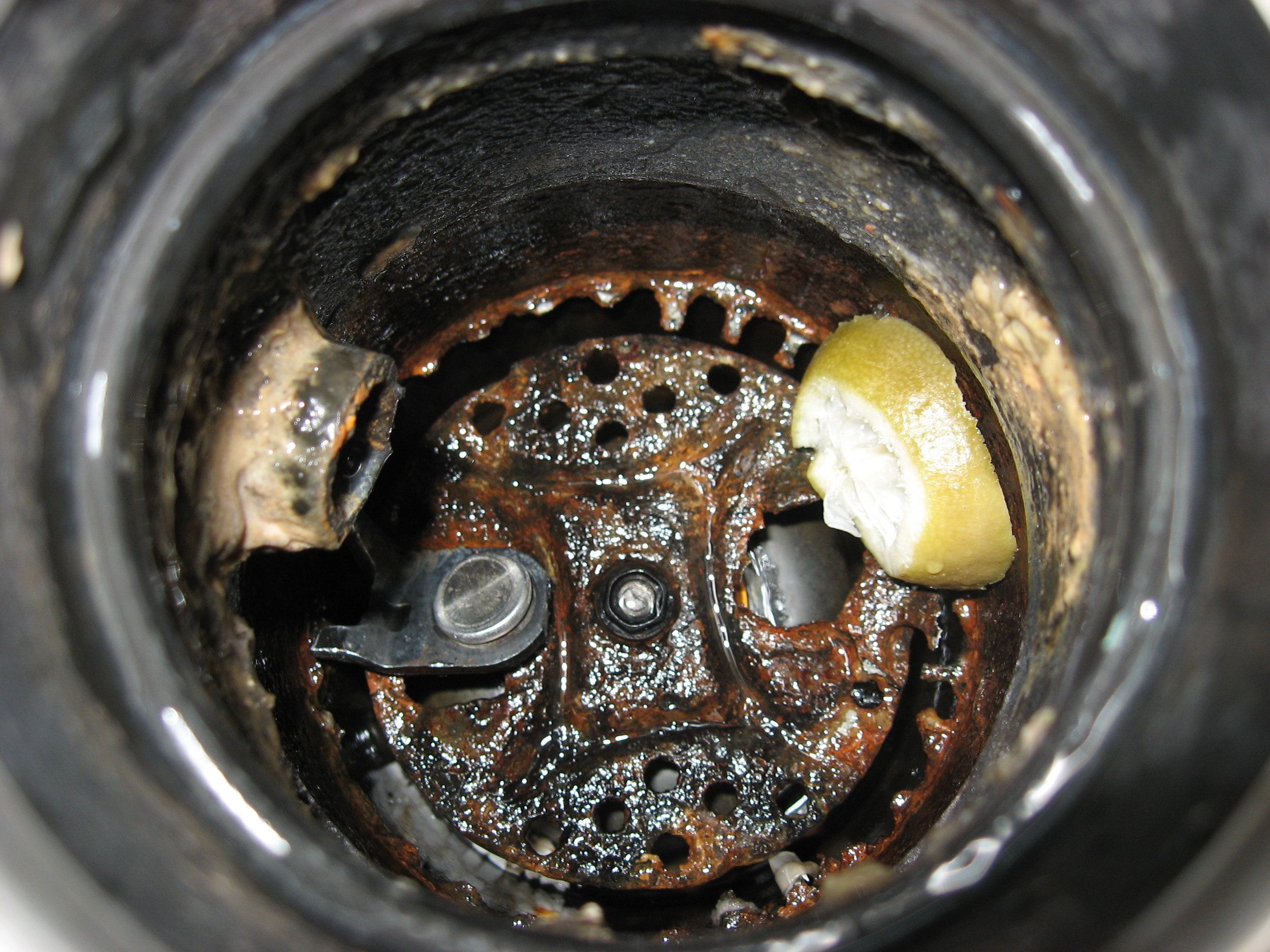Garbage Disposal Fundamentals
Your garbage disposal takes a beating on a regular basis. Not just because the job is a grind, but also because many people really don’t understand the limits of the garbage disposal until there is an unfortunate event.
A clogged garbage disposal is an unfortunate event
How it works
A garbage disposal has two metal disks, which swing fiercely by centrifugal force, which grinds the food up into small pieces that can then go down the drain. These discs are blades are by no means sharp but they do swing fast and, although it won't take your arm off up to the elbow, it will hurt you if you put your fingers down there.
The rules:
Only put a small amount of food down the disposal at one time.
Be sure to run plenty of cold water while you do it . Cold water has the advantage of solidifying small amounts of grease and oil which may be in the food.
Do not put fibrous, starchy, or non-food items in the unit.
Never use chemical drain cleaners in your disposal.
Clean your disposal fairly frequently--every few days.
Things not to put in the garbage disposal
Anything fibrous that can wrap around the metal discs and cause them to stop spinning should be avoided. This includes the following:
Corn husks
Celery
Lettuce
Cabbage
Banana peels
Artichoke leaves
Raw meat or gristle
Anything that can clog the pipes whether it's ground up or not should not be put down the garbage disposal.
Examples:
Grease
Oil
Butter
Lard
All of these will clog your pipes, even if sent down with copious amounts of cold water. Because we live in the Phoenix area, ‘cold water’ is relative, but do your best.
Very hard items will also damage the unit unless they are very small:
Large bones, fruit pits, shrimp shells
Starchy foods-- potatoes, rice, pasta, bread, flour
These gummy foods clog up the guts of the unit and will clog the pipes beyond the disposal.
Chemical drain cleaners will ruin your garbage disposal. Don't use them.
Coffee grounds
Many people believe that coffee grounds are also in the ‘do not’ category We believe that it depends on a number of coffee grounds that you produce. If you have an espresso machine and only make one cup at a time that probably won't hurt it, but if you make pots of coffee on a regular basis those grounds should be put in the trash
Non-food items
Non-food items should never be put down the garbage disposal this includes paper metal cigarette butts glass and plastic
Clogs
If you find that your garbage disposal has become clogged or stuck, you might not need to call a plumber right away. Instead, try to unstick it yourself. First, unplug it or turn it off at the fuse box. Using a pair of tongs or needle-nose pliers, reach in and remove the offending object. You will probably need a flashlight to see inside.
Cleaning
Your garbage disposal needs to be cleaned on a regular basis: use some dishwashing soap and an old toothbrush or scrub brush to clean the rubber flaps. Because a disposal can make a p-trap with old food bits, it can begin to smell. So, every few months you should fill your tea kettle with water to boil, and pour a tea kettle full of hot water down your garbage disposal to help get rid of odors. This can be followed by 2 cups of vinegar. Grinding up some ice cubes will loosen clingy food bit. Some people make vinegar ice cubes which also works.
MNS Plumbing is here to help with all your garbage disposals, dishwasher installation, water purification, and other plumbing installation requirements. Serving the entire Phoenix, AZ Greater Metro Area, you can count on us to keep your home safe all year round.


